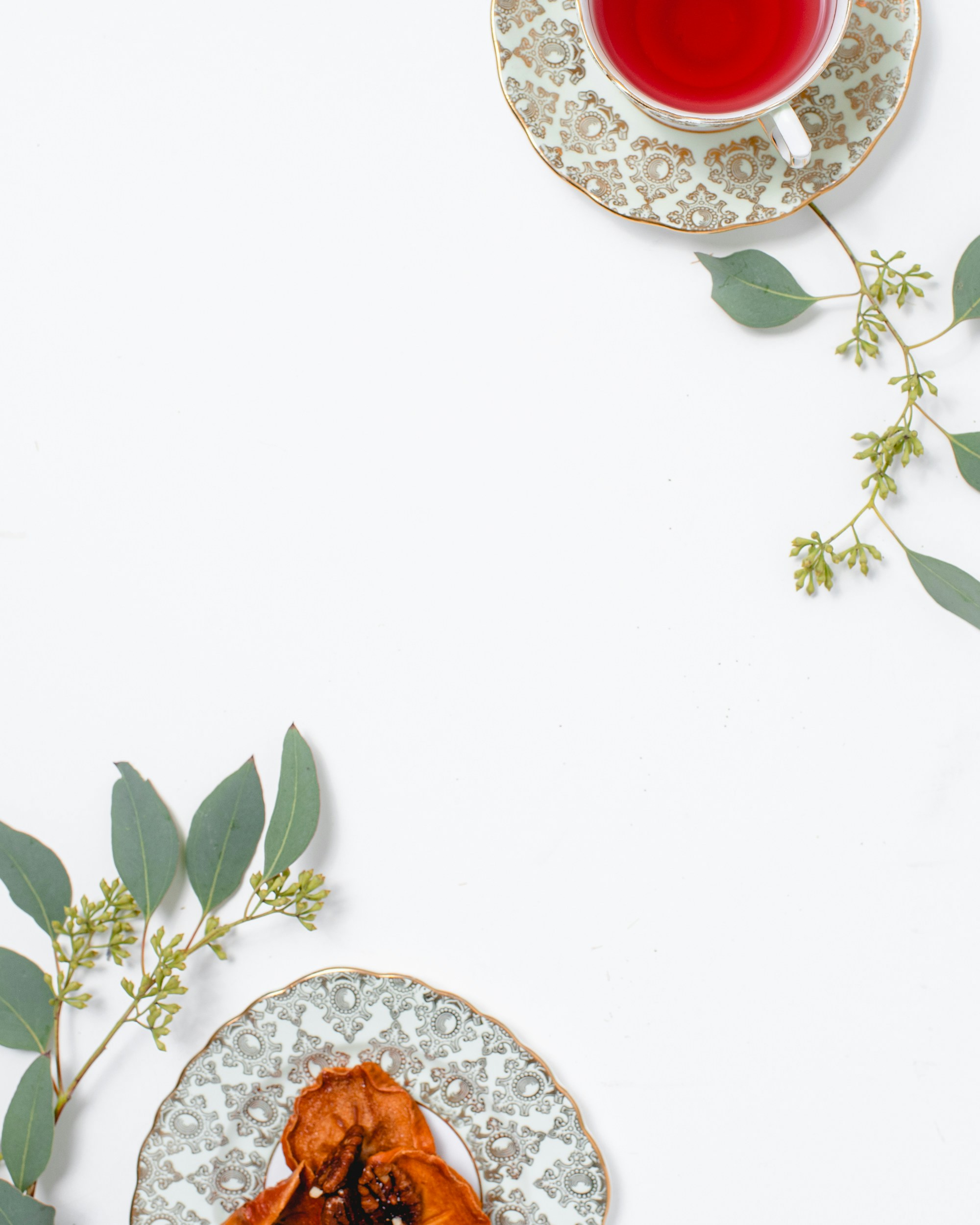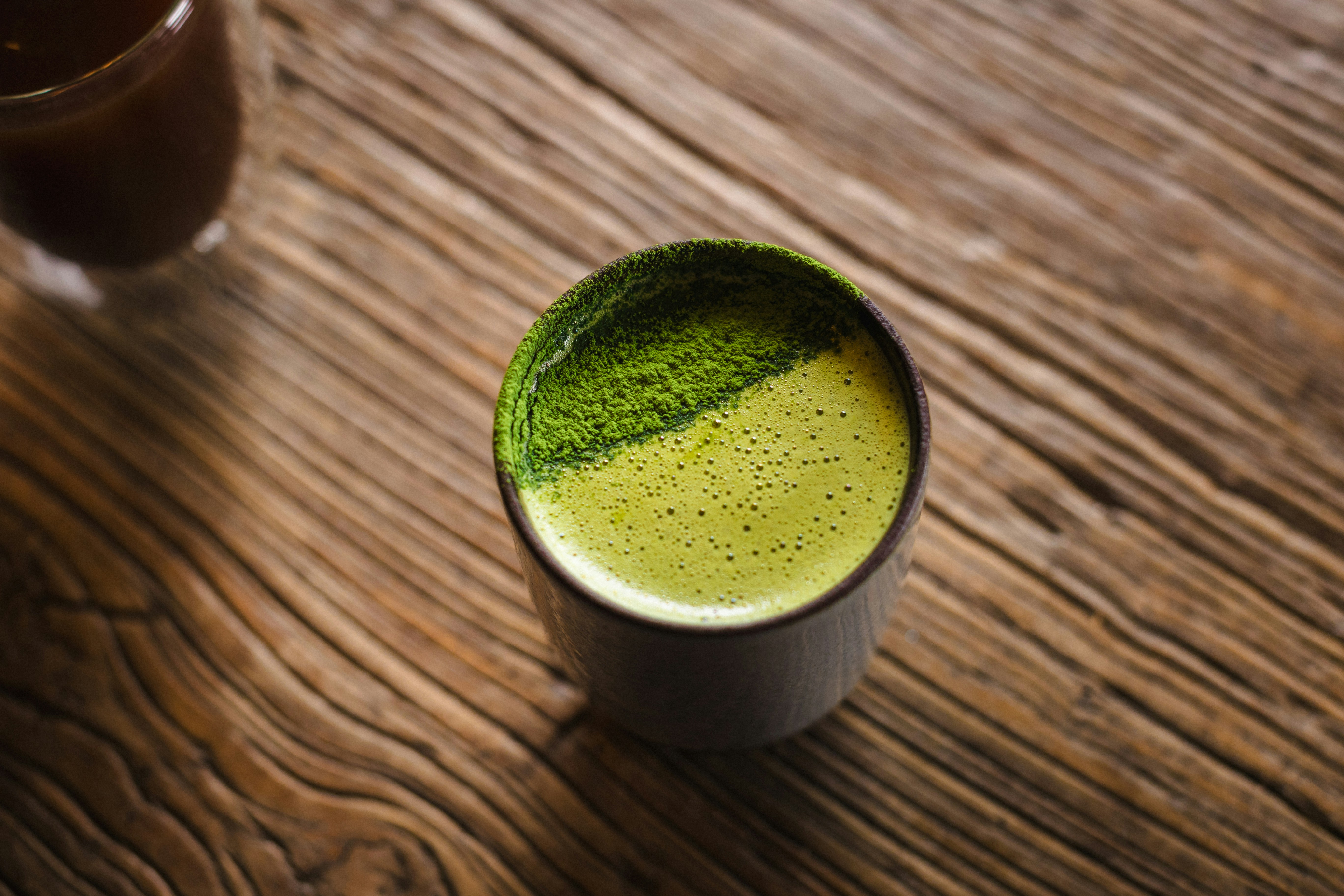Introduction to Herbal Tea Traditions
Herbal tea, often referred to as a soothing blend of nature’s finest botanicals, has held a significant place in various cultures throughout history. This beverage is not merely a drink but embodies a rich tapestry of tradition, healing, and community bonding. Utilizing a diverse array of herbs, flowers, and spices, herbal teas have historically served as both nourishment and medicine. In many cultures, these infusions are believed to promote physical health, emotional well-being, and even spiritual enlightenment.
In ancient civilizations such as China, Egypt, and India, herbal tea was an integral component of daily life. The Chinese, for instance, have utilized the therapeutic benefits of herbal infusions for thousands of years, emphasizing their role in traditional medicine. Various records document the use of teas like chrysanthemum and ginseng not only for their flavors but also for their purported health benefits. Similarly, in India, the rejuvenating properties of herbal teas are ingrained in Ayurvedic practices, where they are consumed to enhance vitality and balance bodily elements.
Moreover, herbal tea traditions foster community bonding. Gathering around a pot of herbal infusion has long been a ritual, providing warmth and connection among individuals. Personal anecdotes from various cultures attest to the comfort derived from these gatherings, as stories and wisdom are shared among loved ones. The act of brewing and sharing herbal tea carries a depth of meaning, imbuing social interactions with a sense of wellness and belonging.
Through the exploration of herbal tea traditions, one gains insight into the historical significance of these infusions, highlighting their multifaceted roles in healing, community, and spiritual practices. As we delve deeper into the practices surrounding herbal tea, we uncover a rich legacy that continues to resonate in our contemporary society.
Understanding the Healing Properties of Herbs
The use of herbs in traditional tea practices dates back thousands of years, rooted in the ancient knowledge of their healing properties. Different cultures have cultivated a deep understanding of various herbs, recognizing their potential in promoting overall well-being. For instance, chamomile, widely utilized in European herbal traditions, is renowned for its calming effects, often administered to alleviate anxiety and support sleep quality. The anti-inflammatory and antioxidant properties of chamomile make it an essential component of herbal tea blends aimed at relaxation and stress relief.
In another cultural context, traditional Chinese medicine highlights the significance of ginseng, often revered as a powerful adaptogen. Ginseng is believed to enhance energy levels, improve cognitive function, and bolster the immune system. Its historical applications showcase its prominent role in restoring balance within the body, embodying the foundational principle that health stems from harmony.
Additionally, turmeric, frequently incorporated in Indian Ayurvedic practices, is lauded for its potent anti-inflammatory and antioxidant effects, attributed primarily to its active compound, curcumin. This golden spice is regularly consumed through herbal teas, particularly for its ability to support joint health and improve digestive function. In this way, turmeric exemplifies how herbs can be integrated into daily routines to enhance overall vitality.
Notably, peppermint leaves, celebrated in many cultures, are recognized for their digestive benefits and refreshing taste. Often steeped as a herbal tea, peppermint is known to soothe stomach discomfort and enhance mental clarity due to its aromatic compounds. Such diverse examples underline the significance of herbal teas in age-old traditions, where they serve not only as beverages but as holistic remedies. Each herb brings forth unique attributes, showcasing the intricate relationship between nature and health throughout history.
Cultural Rituals Involving Herbal Tea
Herbal tea has played a significant role across various cultures, serving as a medium for rituals, social gatherings, and personal reflection. In Japan, the traditional tea ceremony, known as Chanoyu, emphasizes harmony, respect, purity, and tranquility. This ceremony, often centered around matcha tea, incorporates the preparation and presentation of herbal teas with meticulous care. It allows participants to engage in mindful consumption, fostering a deeper connection to the tea and with each other. The ritual embodies not just the act of drinking tea, but also a spiritual journey that celebrates nature and the beauty of simple moments.
In Chinese culture, herbal tea is deeply intertwined with Traditional Chinese Medicine (TCM). Different herbs are selected based on their healing properties, often consumed to balance the body’s Yin and Yang energies. TCM practitioners encourage the use of specific herbal blends for various ailments, promoting wellness and health. Tea-drinking moments in this cultural context are communal, as families and friends gather to share herbal tea and exchange stories, reinforcing familial bonds and community ties. The practice illustrates how herbal tea serves as a bridge for social connections in the pursuit of health and harmony.
Middle Eastern cultures also incorporate herbal tea into their hospitality rituals. The offering of mint tea or other herbal blends is customary when welcoming guests, symbolizing warmth and generosity. The preparation and serving of tea is often a ritualistic practice that involves intricate methods, creating an environment rich with shared experiences. Sharing herbal tea can foster camaraderie, inviting individuals to relax and engage in meaningful conversations. This tradition not only signifies hospitality but also nurtures well-being through the enjoyment of flavorful, soothing infusions.
These cultural rituals surrounding herbal tea evoke a sense of community and personal well-being. By exploring such practices, individuals may find inspiration to incorporate their own tea rituals into daily lives, enhancing mindfulness and connection.
Herbal Tea in Traditional Medicine Systems
Herbal tea has long been an integral aspect of various traditional medicine systems, notably Ayurveda and Traditional Chinese Medicine (TCM). These ancient practices emphasize a holistic approach, focusing on the balance of mind, body, and spirit for optimal health. In Ayurveda, herbal teas are formulated to align with the three doshas—Vata, Pitta, and Kapha—each representing distinct bodily energies. For instance, Vata tea blends might include calming herbs like chamomile and ginger, intended to soothe and stabilize the nervous system.
Likewise, TCM categorizes herbal teas based on their thermal properties and is used to harmonize the body’s Qi (energy) flow. Common formulations in TCM may include chrysanthemum and goji berries, prescribed particularly for their cooling effects and ability to diminish heat-related ailments. These systems demonstrate that herbal tea can serve as more than mere refreshments; they provide significant therapeutic benefits when properly utilized.
Many individuals who embrace these practices often speak of their profound experiences. For example, a practitioner of Ayurveda may recount how a specific herbal tea blend helped alleviate digestive issues and promoted overall wellness. Similarly, a TCM enthusiast might share stories of enhanced energy levels after incorporating ginseng into their tea regimen. Such testimonies highlight the potential of herbal tea as a preventative health measure, reinforcing the belief that natural ingredients can significantly impact health outcomes.
Overall, the enduring popularity of herbal tea within these traditional frameworks underscores its relevance in contemporary discussions about health and wellness. As we explore various herbal formulations, it becomes apparent that the wisdom embedded in these ancient traditions continues to hold value for modern individuals seeking holistic remedies. Each cup of herbal tea becomes a testament to the enduring legacy of these healing practices.
Spiritual Applications of Herbal Tea
Herbal tea has long served as more than just a nourishing beverage; it has been an integral part of various spiritual practices across cultures. Many individuals have turned to herbal tea as a medium for meditation and mindfulness, finding that the act of brewing and consuming these infusions can foster a deeper connection to the present moment. When one engages with the aromas and flavors of herbal tea, it often encourages a journey inward, allowing for reflection and contemplation.
The sacred rituals surrounding herbal tea vary widely. In some traditions, specific herbs are chosen for their spiritual properties—such as chamomile for its soothing qualities or sage for its cleansing abilities. Individuals may create personalized blends that resonate with their spiritual intentions, enhancing their practice. Whether used during meditation sessions or as a calming ritual before sleep, these infusions are often said to promote tranquility and clarity of thought.
Stories abound of individuals discovering transformative experiences through their herbal tea practices. For instance, one practitioner recounts how a daily ritual of preparing peppermint tea would help him clear his mind before meditating, thereby facilitating a stronger connection with his inner self. Another individual shared how chamomile tea became a part of her wind-down routine, bringing her to a state of serenity and enabling her to reflect on her day with gratitude. Such narratives illustrate that the process of engaging with herbal tea is highly personal and can lead to profound spiritual experiences.
As one immerses themselves in these practices, it is beneficial to approach them with an open heart and mind. By allowing oneself to explore the spiritual dimensions of herbal tea without rigid expectations, individuals may find greater peace and groundedness, enriching their overall well-being. Cultivating mindfulness through these herbal infusions can deepen one’s appreciation for both the present moment and the journey of self-discovery.
Modern Interpretations and Adaptations
The evolution of herbal tea traditions has led to innovative interpretations, reflecting both contemporary wellness trends and the gourmet tea movement. As modern lifestyles become increasingly fast-paced, many individuals find solace in the time-honored practice of herbal tea consumption, which offers both relaxation and therapeutic benefits. In recent years, there has been a burgeoning interest in holistic health, prompting a renewed focus on natural remedies and herbal infusions as vital components of self-care practices.
One notable adaptation is the combination of herbal teas with modern health rituals. For instance, the rise of mindfulness and meditation has paved the way for tea rituals that promote tranquility and clarity. Many wellness enthusiasts devote time each day to brewing herbal teas, such as chamomile for relaxation or peppermint for digestive support, as a means to foster a sense of calm and presence. This practice allows individuals to incorporate ancient herbal wisdom into contemporary lifestyles seamlessly.
The gourmet tea movement further exemplifies the adaptation of herbal teas into modern settings. Artisan tea makers showcase unique blends that emphasize quality, flavor, and health benefits. These blends often draw inspiration from traditional recipes, combining them with local ingredients and modern culinary techniques. Herbal teas now come in luxurious packaging and are presented in elegant tea houses, where patrons can not only savor traditional flavors but also explore innovative infusions that cater to current tastes. Examples include turmeric chai lattes and hibiscus iced teas, which highlight the versatility of herbal remedies.
In essence, the integration of ancient herbal tea traditions into modern wellness practices serves to enrich individuals’ lives. Through various adaptations, from mindful rituals to gourmet experiences, the significance of herbal tea continues to flourish, preserving its medicinal attributes while resonating with contemporary audiences.
Personal Stories: Healing Journeys with Herbal Tea
Herbal tea has played a significant role in the lives of many individuals seeking healing and comfort. These personal journeys illustrate the profound impact that herbal infusions can have on health and well-being, often providing solace in difficult times. One such story is that of Mary, a 42-year-old woman who discovered the calming effects of chamomile tea during her battle with anxiety. Overwhelmed by daily stressors, Mary turned to chamomile, which not only helped ease her frayed nerves but also became a cherished ritual of self-care. Each cup served as a reminder to pause, breathe, and embrace tranquility, ultimately allowing her to cultivate a more balanced lifestyle.
Similarly, Andrew, a father of three, faced chronic digestive issues that disrupted his daily life. After consulting with a holistic practitioner, he incorporated peppermint tea into his routine. Remarkably, he noticed significant improvements in his symptoms, leading to a newfound appreciation for natural remedies. Andrew’s experience emphasizes the importance of listening to one’s body and exploring herbal solutions, rather than solely relying on conventional medicine.
And then there’s Lisa, who turned to herbal tea after a challenging battle with insomnia. Frustrated by sleepless nights, she explored blends of valerian root and lavender. To her delight, these calming blends did not merely assist her in falling asleep but also improved the quality of her rest. Lisa’s journey highlights the inventive and personal nature of herbal tea as a holistic approach to well-being. Each story encapsulates a unique relationship with herbal teas, showcasing their potential as more than just beverages; they serve as vital components of healing journeys, encouraging readers to explore the transformative power that these ancient traditions can offer in their own lives.
Precautions and Recommendations
As the popularity of herbal tea continues to grow, it is essential to approach this ancient tradition with caution and awareness. While herbal teas are often praised for their health benefits, they can also present risks, particularly for certain individuals. One of the primary concerns is the potential for allergies. Some herbs known for their therapeutic properties may provoke allergic reactions in sensitive individuals. Common allergens include chamomile, echinacea, and hibiscus. It is advisable to perform a patch test by consuming a small amount of any new herbal tea before incorporating it into your regular diet.
Furthermore, certain herbal teas may not be suitable for everyone due to their nature and effects. For instance, some herbs can contraindicate with medications or exacerbate existing health conditions. Herbs such as St. John’s Wort can interfere with antidepressants, while others like licorice root may increase blood pressure when consumed in large quantities. It is crucial to be mindful of any potential interactions and to research each herb’s properties before adding them to your routine.
Consulting with a healthcare professional is particularly important for pregnant individuals or those with underlying health conditions. Pregnant women should exercise extra caution as some herbs can affect pregnancy or lactation, leading to possible adverse effects on both the mother and the baby. Medical professionals can offer personalized advice based on individual health needs, ensuring that the integration of herbal tea is both safe and beneficial.
In summary, while herbal teas can enhance wellness, it is vital to be informed and proactive. Be aware of potential allergens, contraindications, and the necessity of seeking professional guidance. By taking these precautions, one can safely enjoy the myriad benefits that herbal teas have to offer.
Conclusion: Embracing the Wisdom of Ancients
The rich legacy of herbal tea traditions has traversed through centuries, carrying with it not just the flavors and aromas derived from various plants, but also a wealth of knowledge regarding healing, community bonding, and spiritual connections. The practices developed by ancient civilizations have laid the foundation for the modern appreciation of herbal teas, revealing insights into natural remedies and the holistic benefits they confer. As contemporary society increasingly seeks alternatives to pharmaceuticals and processed foods, the lessons from our ancestors hold particular significance in our quest for wellness.
Herbal tea, often steeped in cultural significance, provides a sense of belonging and shared experiences among those who partake in its consumption. Whether it is a traditional chamomile blend for relaxation, a mint infusion for digestive health, or a robust concoction for immune support, these herbal brews serve not only as refreshment but also as a means to promote harmony and well-being. The warmth and comfort derived from sharing a cup of herbal tea can foster community spirit and provide a moment of tranquility amid the chaos of modern life.
As we reflect on these time-honored practices, it is pivotal to embrace the various herbal tea traditions that surround us. Whether through exploring our own familial rituals, delving into local heritage, or discovering global customs, there is immense value in integrating these traditions into our daily routines. We invite readers to experiment with different herbal blends, engage in the rituals of brewing and sharing tea, and document their encounters. Not only will this deepen personal connections to herbal tea, but it will also enhance understanding of its cultural significance. Let us honor the wisdom of the ancients and carry their traditions forward into our contemporary lives.







Leave a Reply